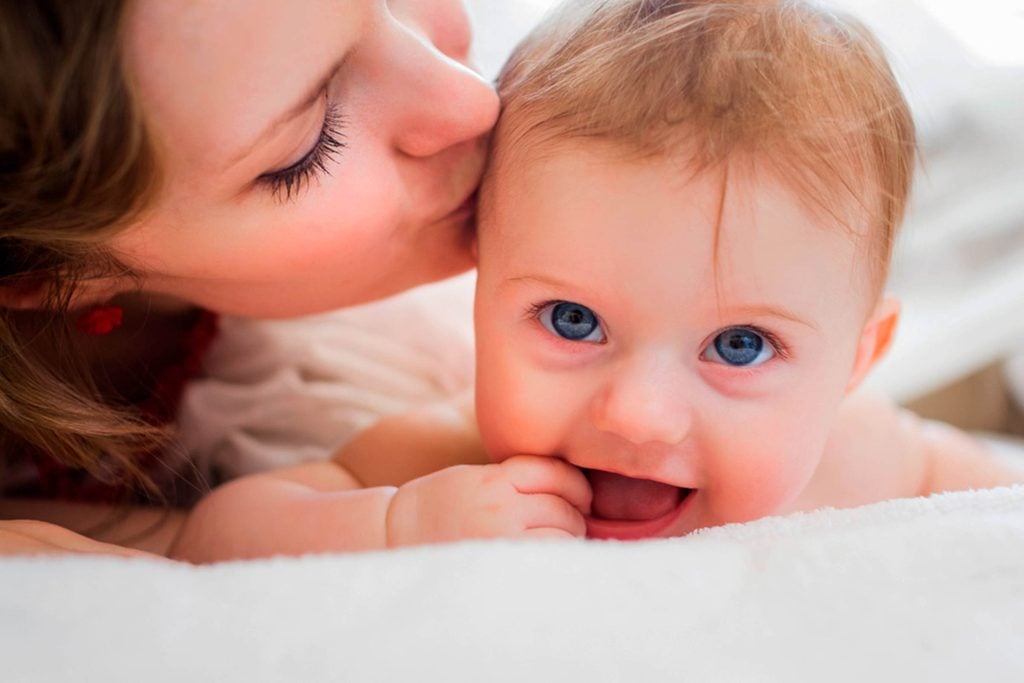The Scary Reason You Should Never Let Anyone Kiss Your Baby
Updated: Jul. 31, 2017
Parents, take note!
Parents of newborns know that everyone wants to see the baby, kiss the baby, hold the baby. All the attention can be a bit nerve-wracking when your infant’s immune system has yet to develop fully. Those over-protective instincts are justified: 18-day old Mariana Sifrit of Des Moines, Iowa, died after contracting viral meningitis. (Do you know the symptoms?) Her doctors concluded the infection was passed by someone who had touched her.
Mariana Reese Sifrit was born a health baby girl. Just six days after her birth, she stopped eating and became unresponsive. Doctors diagnosed a type of meningitis caused by the herpes simplex virus, the same virus that’s responsible for cold sores. Both parents tested negative for the virus, leading doctors to conclude that the virus had come from someone else who had touched or kissed Mariana—someone with the cold sore virus—but not necessarily with an open or visible sore.
By age 40, over 90 percent of the population has been exposed to the cold-sore virus, according to Katherine Miao, MD, FACEP, medical director of CityMD. And it can be spread without a visible cold sore, says Jarrett Patton, MD, FAAP. While in adults, the virus doesn’t usually present a significant risk, in babies, it can become serious and even deadly if it spreads throughout the body.

If someone with the virus touches the baby’s hand, says Dr. Patton, and the baby then touches her eyes, nose, or mouth, the virus can reach mucous membranes allowing it to infect the child. Because a newborn baby has an under-developed immune system, the virus can quickly take the form of meningitis—an inflammation of the tissue that covers the brain and spinal cord.
Does this mean that we need to keep people from touching and kissing our babies?
Dr. Miao says that “exposure to the world is part of how the baby’s immune system develops.” She therefore advocates a “common sense approach.” Anyone who is obviously ill shouldn’t be getting anywhere close to a newborn. And people who want to touch or kiss a baby should wash their hands first.
“It’s perfectly acceptable to carry a hand sanitizer for people to use before they touch your baby,” suggests Dr. Patton. In addition, it’s a good idea to limit the touching to the stomach and forehead.
“This is a rare and extraordinary tragedy,” says Charles E. Crutchfield, III, MD, clinical professor of dermatology at the University of Minnesota Medical School, “and it reminds us all that we have to be very careful around babies.” The good news is that every day, a baby’s immune system gets stronger.











